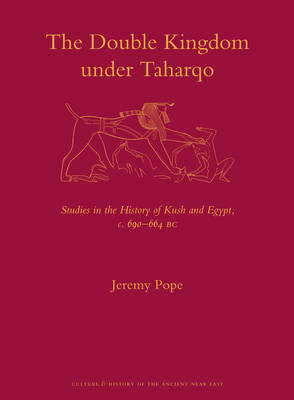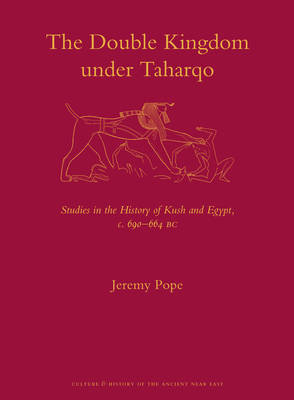
- Afhalen na 1 uur in een winkel met voorraad
- Gratis thuislevering in België vanaf € 30
- Ruim aanbod met 7 miljoen producten
- Afhalen na 1 uur in een winkel met voorraad
- Gratis thuislevering in België vanaf € 30
- Ruim aanbod met 7 miljoen producten
Zoeken
The Double Kingdom Under Taharqo
Studies in the History of Kush and Egypt, C. 690 - 664 BC
Jeremy W Pope
€ 392,45
+ 784 punten
Omschrijving
The establishment of Kushite rule over Egypt during the eighth and seventh centuries BC resulted in a state of extraordinary geographic dimensions and ecological diversity, stretching from the tropics of Sudanese Nubia over 3,000 km to the Mediterranean. In The Double Kingdom under Taharqo, Jeremy Pope uses the copious documentary and archaeological evidence from Taharqo's reign to address a series of questions which have dogged study of the Twenty-Fifth Dynasty: how was it possible for one king to control all of that territory? To what extent were the Kushite pharaohs' strategies of governance influenced by the circumstances of their homeland versus the precedents of Egyptian and Libyan rule? And how did Kushite policies differ from those of their Saïte successors?
"Bringing to bear an impressive mastery of the sources and refreshingly open to anthropological and comparative approaches, Jeremy Pope's study is welcome in providing a close and careful analysis of varied sources, both historical and archaeological." David N. Edwards (University of Leicester)
"...a seminal work pioneering a new historical approach to the Twenty-Fifth Dynasty." László Török (Hungarian Academy of Sciences)
"Bringing to bear an impressive mastery of the sources and refreshingly open to anthropological and comparative approaches, Jeremy Pope's study is welcome in providing a close and careful analysis of varied sources, both historical and archaeological." David N. Edwards (University of Leicester)
"...a seminal work pioneering a new historical approach to the Twenty-Fifth Dynasty." László Török (Hungarian Academy of Sciences)
Specificaties
Betrokkenen
- Auteur(s):
- Uitgeverij:
Inhoud
- Aantal bladzijden:
- 352
- Taal:
- Engels
- Reeks:
- Reeksnummer:
- nr. 69
Eigenschappen
- Productcode (EAN):
- 9789004262942
- Verschijningsdatum:
- 17/01/2014
- Uitvoering:
- Hardcover
- Formaat:
- Genaaid
- Afmetingen:
- 218 mm x 295 mm
- Gewicht:
- 1179 g

Alleen bij Standaard Boekhandel
+ 784 punten op je klantenkaart van Standaard Boekhandel
Beoordelingen
We publiceren alleen reviews die voldoen aan de voorwaarden voor reviews. Bekijk onze voorwaarden voor reviews.








